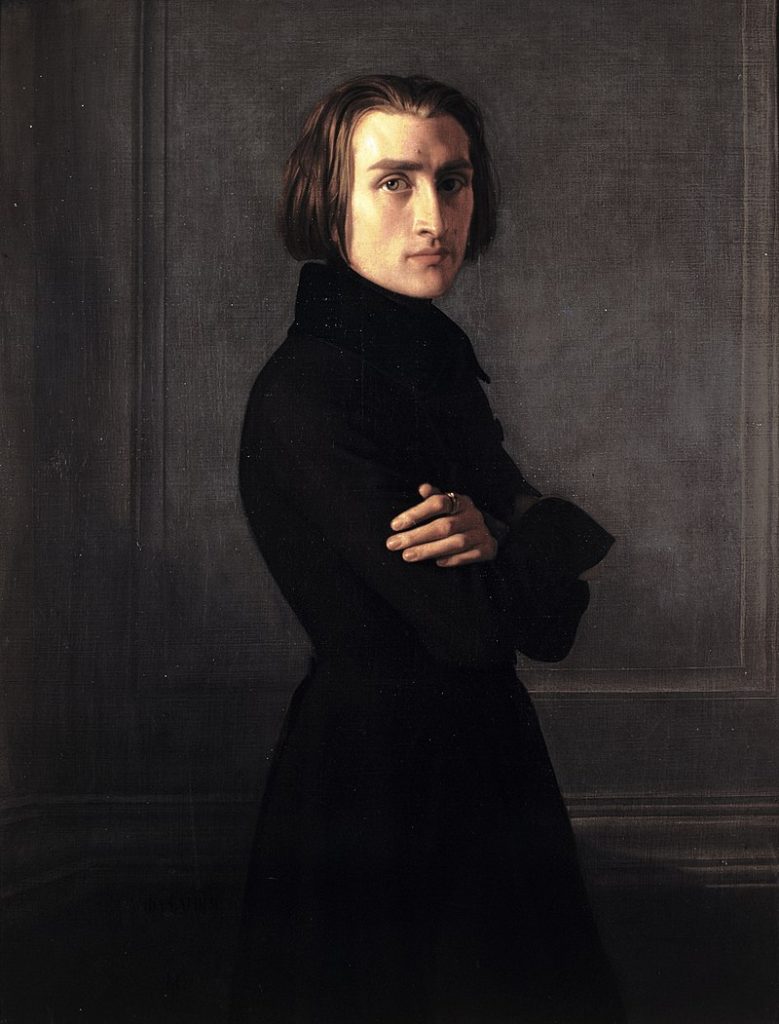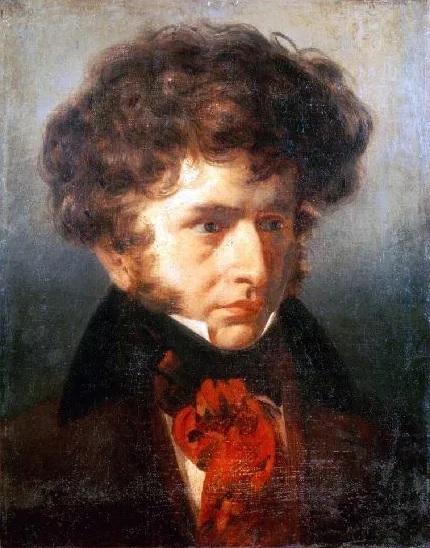Introduction
In this article I would like to talk to you, in the most concise way possible, about the role that the figure of Franz Liszt played in the History Of Music. I will try to avoid all that information that you can find everywhere, such as his date of birth or death, and to go straight to the point of the issues that I consider most interesting to highlight in the chaos of information that we can find about his person.

The Piano Recital
The title of this article, deliberately provocative because it contains a rather superficial question, makes you understand what difficult questions orbit around this charismatic figure: Franz Liszt was certainly an essential pianist for the History of Music, and much of his myth is due to the invention of a new form of concertism, the so-called Piano Recital. If in fact today we dispose ourselves in a sort of meditative attitude to listening when we enter an auditorium, it is because we are convinced that on stage the pianist is declaiming an opera, he is precisely reciting it, hence the word recital. In the past the perception of a piano concerto was completely different and with Liszt, in full Romanticism (find a summary on Musical Romanticism here), we witness a real Copernican revolution of the instrument that definitively earns a place among solo instruments.
What DoesTranscendental Mean?
With the word transcendental today we tend to refer to a whole series of areas, in truth often indefinite, which arise as the overcoming of a norm. This term is very often used in the collective imagination to indicate those powers of divine entities that transcend the norms of matter. A phenomenon that does not follow the norms of reality is transcendental: on this conception of the transcendental one could debate at length, in this article we will limit ourselves to saying that there are profound similarities between this type of definition of transcendence and what Franz Liszt meant when he said of his studies that they were transcendental. In particular, Franz Liszt profoundly studied piano technique, conceiving it as an instrument to transcend the materiality of sound, acoustic physicality, to arrive at the immaterial, poetic subject par excellence of the romantic current, sometimes named absolute. The Twelve Transcendental Performance Studies for piano, for example, are dedicated to his Maestro Carl Czerny of which we have already spoken in a past article, which you can find here. Listen to them below: further down you will find a banner through which to support our blog by buying what in my opinion is the most faithful paper edition of these studies currently on the market.
You can easily understand from whom Franz Liszt inherited his passion for the technical and virtuosic aspect of the piano by listening to some of the simplest studies (such were considered by Maestro Czerny since he used them for elementary piano preparation) that he wrote. I play them for you at the piano below, you can listen to them by pressing play. You will also find their paper score in a banner further down: if you use it to buy the score, a small part of your purchase will go to support this blog without any additional expense compared to the normal purchase on Amazon.
Carl Czerny was a pupil of none other than Ludwig van Beethoven. Yes, just that Beethoven: you can find an article about him here.
The Birth Of The Symphonic Poem
Paris was the city of choice for the Pianists and Composers of the nineteenth century, many went to the capital to study at the then Paris Conservatory. Although the image of a Paris dominated by the Eiffel Tower is now part of the collective imagination, we must think that when Liszt went to the capital at the age of twelve, in 1823, the tower did not exist (it will be completed only in 1889).

It is not easy for us to imagine a twelve-year-old Franz Liszt who tries to be admitted to the Paris Conservatory and who, after being rejected because he is a foreigner, returns home with great disappointment to devote himself to the writing of virtuosic pieces for piano. Liszt in fact at that time was already playing in the most famous Parisian salons, he was a prominent figure among the bourgeoisie of his time, so much so as to establish friendship with none other than Giachino Rossini. In 1830, now nineteen years old, Liszt heard in Paris the Fantastic Symphony by Hector Berlioz, and transcribed it in a very personal rendering. This experience, together with the meeting with Paganini who will suggest the virtuosic ideal of which we have already spoken, will forever mark the poetics of Franz Liszt because it will push him to conceive symphonic forms in his opinion more poetic in an extramusical sense, in which the movements are connected by a single theme (such as the fixed idea of the Fantastic Symphony): in this way a completely new genre was born, which will be revisited on several occasions by many romantic composers: the Symphonic Poem.

Artistic Maturity
1848 was a year of profound changes for Franz Liszt, who gradually abandoned concertism. On the advice of a new companion, a princess he met in Kiev, he moved to Weimar at the age of 37 where he became Kapellmeister of the Grand Ducal court. Of course, fame had not abandoned him, for this reason he managed to make the small German town a great cultural center for European music. From this moment on, thanks to the well-known experiences of a religious nature, Liszt turns to sounds that are no longer grandiose and sumptuous, but closed in increasingly clear successions of parallel chords, recovering and transfiguring a past tradition, turning to new languages through the use of scales for whole tones.
Conclusions
We can conclude today’s article by trying to answer the question with which we started: for the scope of his concert, technical and stylistic innovations, Franz Liszt can certainly be considered one of the leading figures of pianism of all time. We will return to talk about it, and we will deepen this first introductory sketch with the analysis of his works: follow the next articles to not miss the news! We will see you in tomorrow’s daily article.
- History Of The Piano – The Fortepiano - July 12, 2022
- Curt Sachs – History Of Organology At a Glance - July 8, 2022
- Giuseppe Verdi – Rigoletto, Il Trovatore, La Traviata - June 29, 2022
